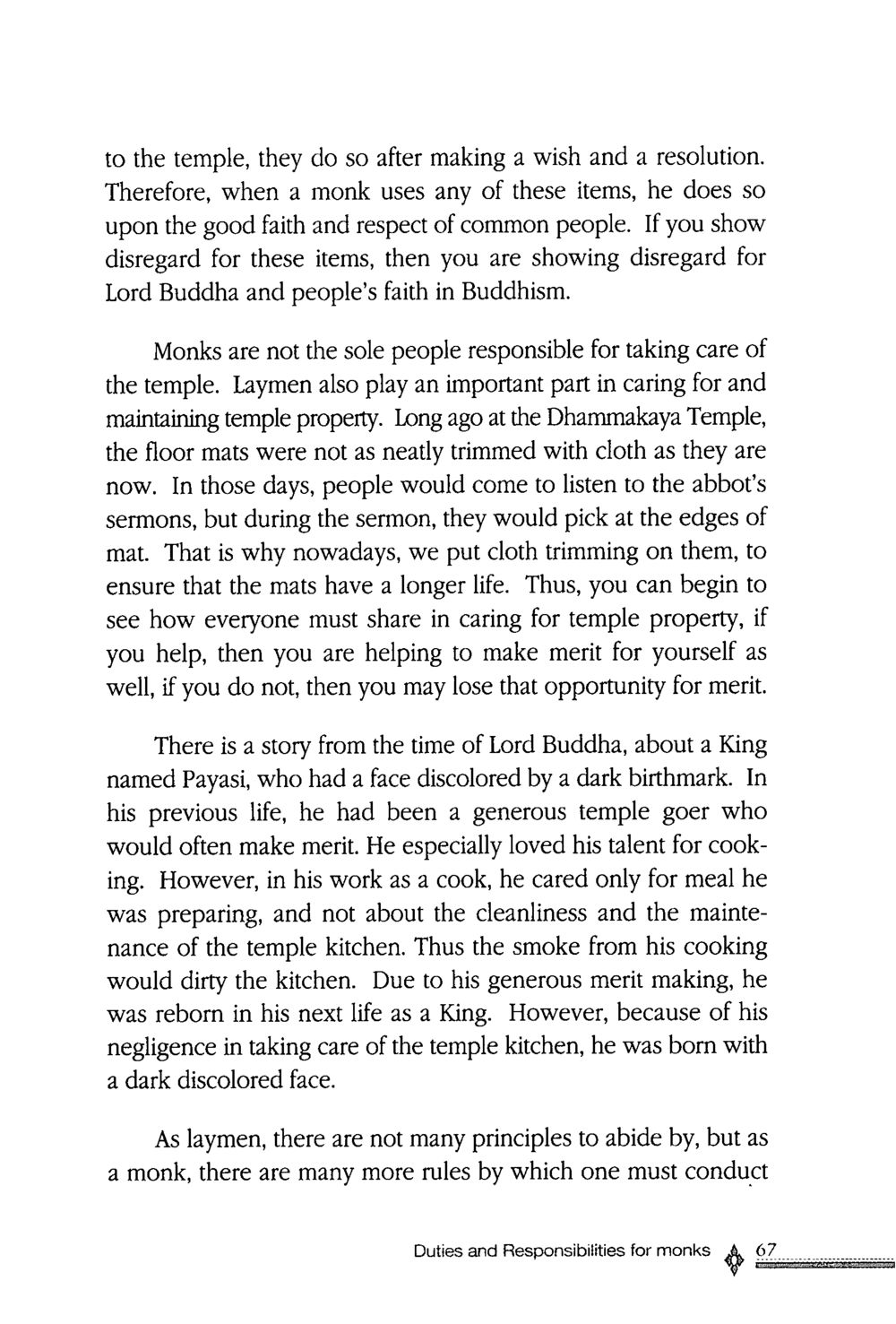The Importance of Collective Care in Temples : หน้า 68/105
The ordination : หน้า 68/105 Explores the significance of collective responsibility in caring for temple property and the impact of individual actions on merit-making in Buddhism.
1 ครั้ง

สรุปเนื้อหา
This text discusses the shared responsibility between monks and laypeople in maintaining temple property. It highlights the importance of respect for items used in religious practice and how neglect can affect one's spiritual merit. A story from Lord Buddha's time illustrates how actions in one life can impact rebirth, emphasizing that each individual must contribute to the upkeep of sacred spaces. The text reinforces that both monks and laypeople are integral to the temple community, urging everyone to participate in fostering respect and care for their environment to make merit. It concludes with a reflection on the differing responsibilities between monks and laymen in Buddhist practice.
หัวข้อประเด็น
-collective responsibility
-respect for religious practices
-merit-making in Buddhism
-role of monks and laypeople
-impact of individual actions on rebirth









































































































